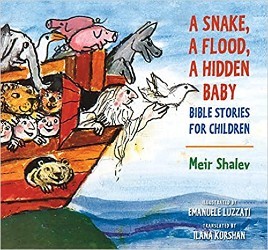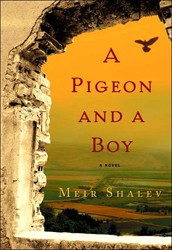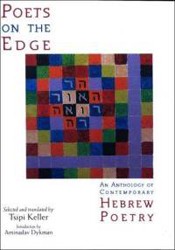“A rifle, a cow, a tree, and a woman[…] and the rifle was not only the hero of this plot, it was also the one who wrote it.” In 1930 the British authorities recorded three suicides in a moshava—a Jewish colony — but one of these deaths, as everyone in the community knew, was a murder, never mentioned again. Decades later, while interviewed by a researcher on the history of the settlement, Ruta Tavori decides that the time has come to tell the story triggered by the rifle, the story that everyone knows and no one tells.
Over the course of several interviews, Ruta, a teacher of history and Bible, chronicles the life of the moshava and the ugly murder that lies at the heart of her family. Ruta’s family and her life have been shaped by two powerful men: her grandfather, Ze’ev Tavori, who brought her and her brother up, and her husband, Eitan — each of whose lives have each been shaped by heartbreaking events. Shifting back and forth in time, Ruta’s narrative plays out the consequences of these events with an even-handed measure of affection, bitterness, humor, judgmental swipes at her sister-in-law and neighbors, Biblical allusions, wry self-deprecation, love, and acceptance. Ruta’s retelling captures the spirit of the moshava from its founding to the near present: the new names that spelled the break from Europe — “We’re done with all the Yankels and Shmerels and Mottels,” declared the founding father, calling his sons Dov, Ze’ev, and Arieh and changing Twersky to Tavori; the deep knowledge of every tree and flower and rock; the abiding love of the physical land; the dismissal of city life and authority; the simple lunches of hard cheese, cracked olives, cucumber, and garlic.
Meir Shalev was born on Israel’s first moshav, and he draws a vibrant picture of life in an agricultural settlement. Readers will feel as if they themselves are hiking the trail to the carob tree, tending the plants in the moshava nursery, observing the military-style setting up of an ambush, and sitting shiva under the trees in this richly layered narrative. A tale of murder and its reverberations through the years, a love story of deep physicality and sensitivity, a moving picture of male compassion, a brief overview of British Palestine and Israel over seven decades, Two She-Bears is a many-sided novel by one of Israel’s most prominent writers.
Related Content:
- Meir Shalev Reading List
- Contemporary Israeli Literature
- These Are the Names by Tommy Wieringa
Maron L. Waxman, retired editorial director, special projects, at the American Museum of Natural History, was also an editorial director at HarperCollins and Book-of-the-Month Club.




